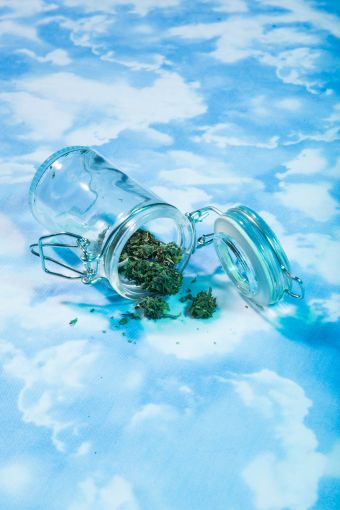Weed the People is one part didactic, one part polemic, and one part human story. The documentary methodically alternates among these three types, ultimately landing a compelling, if at times sentimental and anecdotal, argument for the official licensing of cannabis as a cancer treatment. Directed by Abby Epstein, the film follows several families with sick children as they use cannabis as a means of medical care. Interviews with experts and practitioners are interspersed throughout to provide medical and historical context for the drug.
The majority of the families Epstein follows hadn’t considered cannibis oil originally. Because it remains illegal in many states, there is little regulation or official research into its effects — not to mention, its use as a recreational drug leaves a cloud of stigma around potential medical benefits. But once you have a child with cancer, one mom explains, “the rulebook goes out the window.” The five children Epstein focuses on are of varying ages from infancy through their teens, and the severity of their conditions similarly fluctuates over the years.
“…follows several families with sick children as they use cannabis as a means of medical care.”
For all of the families, it appears that the cannabis oil they introduce into their children’s regimen eventually helps to reduce tumor size or even cure the cancer altogether — but it’s difficult to be sure. Aunt Zelda’s, a California nonprofit run by a self-trained couple, is the cannibis oil provider for several of the families. The couple cooks it out of their home kitchen. The makeshift nature of the operation alone is a persuasive case for government acceptance and regulation, but it also calls the efficacy of the drug into question. How can we be sure it really is the cannibis that’s helping these kids? Are we supposed to buy that it works solely because these five families swear by it?
In this respect, expert interviews are helpful in providing supplemental validation. The reason marijuana was initially made illegal, we learn, was a racist one: it was dubbed an “evil Mexican drug” and vilified through cartoons depicting it as dangerous and demonic. If we could only challenge and deconstruct these assumptions, as several talking head authorities explain, cannabis may have a chance at receiving the research grants it so badly needs.
“The couple cooks it out of their home kitchen…”
Any time a parent is forced to confront a child’s sickness or death is beyond difficult to watch. It may be impossible to avoid tear-jerker moments with a story of this type, but this is unfortunate, because these sorts of scenes often detract from the film’s instructive power: too much tugging at a viewer’s heartstrings feels uncomfortably manipulative. Still, there is undeniable merit to the film’s overarching plea — one that, at its best, Weed the People presents with grave urgency and convincing logic.
credit:filmthreat.com




